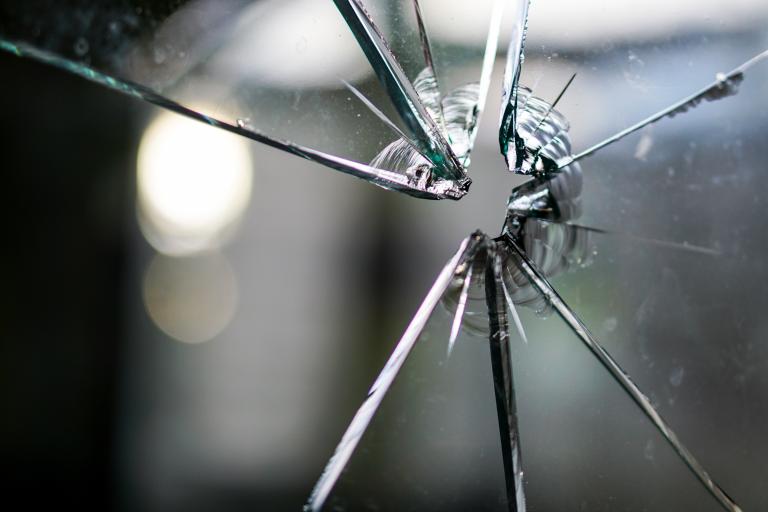Saturday morning, I was in an urgent care waiting room with a sick kid. It’s that time of year, and you just know the germs are coming for you. While we were waiting, a teenager came out on crutches. While he and his parents were waiting to check out, he started crying. I mean, a big old boy, just standing there sobbing in the doctor’s office. And his dad went over, put an arm around him and was trying to comfort him. But the dad was also getting choked up. Meanwhile, the mom was filling out paperwork, clearly trying her best not to lose it.
And with a dehydrated and barely awake boy in my lap, I’m thinking—there is clearly more going on here than a broken ankle. It was a beautiful Saturday and the kid was wearing athletic gear. I wondered if there was some major milestone sporting event they were missing this weekend, after years of hard work and preparation. After countless Saturdays spent on the field, it can all just fall away like that. Maybe there were even college scholarships on the line?
I do not know, and will probably never know. But for the rest of the day—taking care of my own, who had a virus that would surely blow away with the weekend—I couldn’t stop thinking about them. I was heartbroken for a family I don’t know, for whatever dream may have died that day. Their grief was so palpable, I couldn’t help but hold space for it. Whatever it was.
Maybe that’s what waiting rooms are for sometimes. Holding space for those who wait with us. Whatever they wait for.
It got me thinking, among other things, about how little space we provide for grief. Especially for that which is not, precisely, death. We don’t provide ways for people to process the countless losses, big and small, that accumulate across different seasons of our lives.
Relationships that end, whether in one big fall-out or those that fade over time; missed opportunities; places we’ve lived and left but that remain a part of us; personal failures; the general bummer of aging bodies; loss of faith in something we once believed in; or dreams that die, by way of time or calamity. In our lives, there isn’t much room for sickness, for sadness, for injury … and so there isn’t much space for the healing needed after.

My son, once back in the exam room, was not looking so good. He’d been throwing up for about 18 hours. Because both of my kids have 0 percent body fat (literally), it did not take long for him to get dehydrated. He could barely hold himself up; he was an alarming shade of green. And yet, when the doctor walked in and said, “How are you doing this morning, buddy?”, his auto-pilot response was: “good.”
I was like, “Actually, you are not doing so hot … which is why, you know, we’re at the doctor on a Saturday.” And the doctor and I said, in unison: “It’s OK to say you’re not OK.”
Let’s all try that, in unison. Repeat as needed, to yourself and others. “It’s OK to say you’re not OK.”
We have to know we’re sick to be made well.
How do we help kids process it when dreams die, when something needs to be laid down? For that matter, how do actual grownups move through those rough transitional seasons of rethinking and reframing our deepest desires?
Saying we’re not OK is a good first step. Beyond that, I think we could all use some resilience training. This is something they are teaching in schools these days, and it’s wonderful. Teachers, principals and guidance counselors work with kids to identify “trusted adults” so that they are always mindful of who they can go to when they need support, who’s in their corner when disappointments happen, or even in a crisis. They focus on gifts and strengths, so that kids can remain focused on their assets, and bounce back more quickly from what feels like failure. They try to give kids a working vocabulary for feelings so they can articulate their challenges and seek support in dealing with them. On the whole, we are helping create space for kids to acknowledge and deal with setbacks, and feel empowered to turn it around.
I want this for grownups. I want us to know and name our heartbreak and our strengths. I want us to know how to identify our support systems. I want us to remember we are not alone in the waiting room, when our kid is hurt and struggling and we have no idea WTF we are doing as parents, we can only sit there and cry with them.
Mostly, I wish we could all to learn how to hold what is broken. How to honor what hurts, what is not perfect, without immediately moving on to the next thing. But also, I want us to know there WILL be a next thing. Some hidden miraculous talent, some surprising opportunity, some new relationship, some life that comes out of the ashes. We just have to sit there and leave it space.
We just have to be in the waiting room.
















